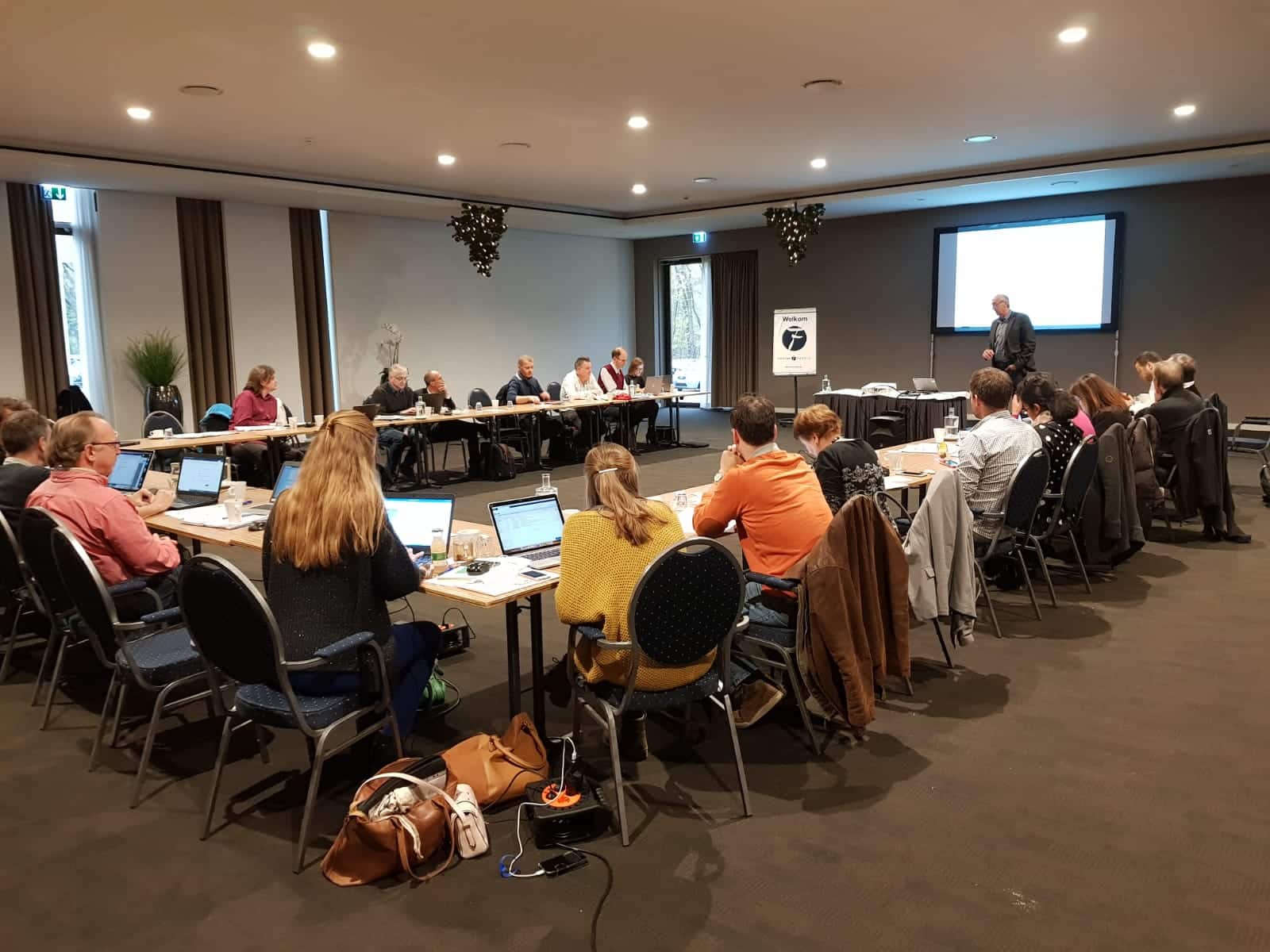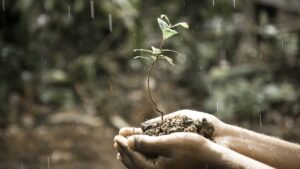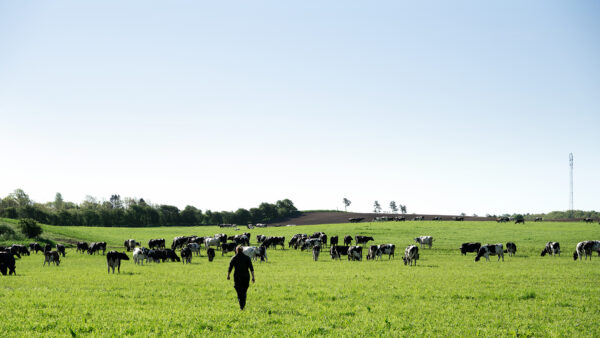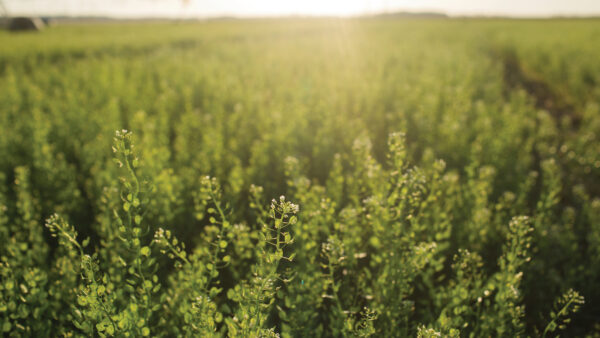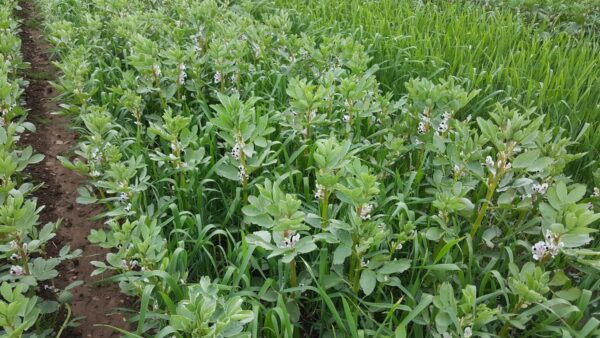By 2050, global agricultural production will need to be increased by 70 to 100% in order to feed the world. Since this not possible without cutting down our rain forests and destroying the Earth’s ecosystem, we will have to grow everything on the agricultural land currently in use. Combined with a transformation from a fossil society into a bio-based society, we face the challenge to increase global agricultural biomass production between 100 and 130% within the coming decades, but without increasing the production area. The CropBooster-P project explores how this can be achieved.
European Seed (ES): René, can you tell me a bit more about the CropBooster-P project?
René Klein Lankhorst (RKL): In CropBooster-P we will create a roadmap with options and scenarios to develop crop plants that are better equipped to meet some of the most pressing challenges of our time: How can we feed a future global population of 10 billon? And how can we mitigate the effects of climate change? This project is our response to the Horizon 2020 project call “Future proofing our plants” of the European Commission.
On paper, these questions are quite easy to answer: Calculations show that by 2050 we will have to increase global agricultural production between 70 and 100% in order to feed the world. And since we cannot increase the agricultural production area with these percentages without cutting down our rain forests and destroying the Earth’s ecosystem, we will have to grow everything on the agricultural land currently already in use. This thus translates into increasing our current agricultural yield per hectarewith 70 to 100%. Regarding climate change, the obvious thing to do is to stop using fossil energy and transform our fossil society into a bio-based society. This would require an estimated additional 30% increase in global agricultural productivity as we would need massive amounts of biomass to supply, for instance, our chemical industry with alternative feedstock.
So, in total, we face the challenge to increase global agricultural biomass production between 100 and 130 per cent within the coming decades but without increasing the production area. And of course, we do not want to compromise crop quality, so we also have make sure that increasing crop quantity does not go at the expense of quality.
While this is easily said on paper, in practice it will be a gargantuan task! This is why the European Commission now asks for scenarios to develop the future crop plants that will be central in meeting these challenges regarding food security and climate change. But there is more to it: it is not only about developing scenarios to design our future crops, the Commission also wants to know what the economic, environmental and social effects of using these crops in future agriculture will be. And last but not least, the Commission also wants to know how the European plant science community can be organized to carry out the required scientific research and, most importantly, how this can be done while getting the support of society so that in the end the implementation of this research will be accepted by society.
So, all the above is what our project will tackle. CropBooster-P is a so-called “Coordination and Support Action” which means that is not a research project but a supporting project in which we will develop a roadmap for the European Commission highlighting different scenarios the Commission can use for policy making and for developing future research directions.
ES: How will the work be organized in the project?
RKL: CropBooster-P is organized into six work packages and basically, all partners are involved in most of them. In addition, every work package also will involve members of our Stakeholder Group.
Work package 1 is called “Research Toolbox” and is led by the Flanders Institute for Biotechnology (VIB). The aim of this work package is to assess the current scientific and technical options available to improve crop plants, of course without losing crop quality. Through literature research and data-mining we will compile a comprehensive overview of the current state-of-the-art in the field. In addition, ETP-Plants for the Future will take the lead in organizing a “forward looking” workshop. In this workshop, together with our stakeholders we will develop future scenario’s how the different options to improve crop plants would work out when extrapolating the current state-of-the-art.
Next, in work package 2 “Economic, Social and Environmental Impact” an analysis will be made of the effects that the scenarios that are developed in work package 1 will have on society. This will be led by Lancaster University and one of the hallmarks of this work package will be the organization of a number of different Expert Workshops to assess the economic, social en environmental effects that the implementation of different options to improve crops will cause. Amongst the workshops that we will organize are a Farmer Focus Group, organized by ACTA, a Non-farmer Expert Focus Group, organized by Plant-ETP, a Business Expert Focus Group, organized by the European Seed Association and a Consumer Expert Focus Group, organized by Wageningen University.
Work package 3 “Societal Needs and Expectations”, led by the Julius Kühn Institute, has the important task to involve consumers, citizens and NGO’s in the development of the roadmap that CropBooster-P ultimately will deliver. Following a responsible research and innovation strategy, we thrive to involve non-expert stakeholders throughout the entire project in order to come to solutions that will have an as broad as possible support in society. In order to achieve this, we will, amongst others, organize regional workshops with farmers and consumers in Eastern Europe, organized by the University of Agricultural Sciences and Veterinary Medicine Cluj-Napoca, in the Mediterranean area, organized by Consiglio Nazionale delle Ricerche and in North-Western Europe, organized by Wageningen University. In addition, we will have dedicated workshops to develop communication strategies towards industry, organized by the European Seed Association, and towards European farmers, organized by Plant-ETP. Finally, almost at the end of the project, a pre-final draft version of the roadmap will be scrutinized by a Citizen Jury, organized by Wageningen University.
INRA will be leading work package 4 “International Cooperation”, in which we will bring together networks and communities of researchers to build a consensus among requirements of sustainable strategies to improve crop yield and nutritional quality at European scale. We will do this by first mapping these networks and then organizing joint meetings and conferences and by drafting joint white papers.
Finally, work package 5 “Strategy Development” will bring it all together. This work package, led by Wageningen University, will digest and amalgamate the results of all the other work packages and will draft the roadmap for the European Commission. This roadmap will present the different scenarios that have been developed to future proof our crop plants, tested by expert panels and scrutinized by stakeholders from society. In addition, the roadmap will include a fully worked out plan as how a large European research program could be developed and run to carry out the research proposed in the roadmap.
Of course, there is also management and governance involved in running a project like CropBooster-P and those activities are the realm of work package 6 ”Management and Stakeholder Involvement”. This work will be led by Wageningen Research with an important role for EPSO as responsible partner for interactions with our stakeholder group.

ES: How will the European consumers benefit from this project?
RKL: This is of course a rather difficult question to answer as the main deliverable of CropBooster-P will be a roadmap to advise the European Commission on the issue of sustainable increasing crop production. So, we will be dependent on what the Commission exactly will do with the roadmap. But in case politics decides to follow and execute the roadmap, then I am convinced the benefits for society and thus also for European consumers will be major as it will significantly contribute to sustainably secure future food production and -availability. And of course, also the effects of the proposed research in aiding the transition from a fossil economy to a bio-based economy will have a profound impact on society.
These beneficial effects will only be tangible to European consumers in the mid or far future as the roadmap itself has a focus on 2050. However, also on the short term there will be a clear benefit for consumers as we will develop the roadmap in close collaboration with them. Through our stakeholder group and also via our workshops, European consumers will have a clear voice in developing the roadmap towards a more sustainable future, and I really look forwards to the cooperation with consumers, farmers, and NGO’s in CropBooster-P.
ES: Doubling the European crop yield by 2050 is a very ambitious target. Is it at all feasible?
RKL: The clear answer is yes, scientifically and technically this is feasible. But I have to add immediately that reaching this goal not only will depend on the development of high-yielding, future-proof crop varieties, but also a lot of other factors will be decisive. For instance, we will need the political will to embark on a massive European research endeavour to develop these crops which will take at least 10 years at a budget of several hundred million euro, maybe even exceeding 1 billion euro. Then of course, these novel crops will have to be grown on a large scale which probably will also require adaptations in the entire food production chain, from seed producers via farmers and food producers to end users. This will be an extreme challenge to organize, requiring again a lot of political will and the cooperation of the entire chain.
But regarding the science behind it, we know already that we can develop these high yielding crops and the core process that we need to optimize for this is plant photosynthesis.In agriculture, the efficiency of photosynthesis is embarrassingly low as only on average 0.5 – 1% of the incoming solar energy is converted into crop biomass. However, we know that in theory plant photosynthesis could reach efficiencies of approximately 4% and in nature, we do find plants which indeed exhibit such an extremely high photosynthetic efficiency. If you take into account that there is a linear relationship between crop yield and photosynthetic efficiency, it follows that if we would increase the photosynthetic efficiency in crop plants to 1 – 2%, we immediately would double crop yield! And further good news is that we already have proof of principle that this indeed works as the first scientific publications, also authored by some of our partners in CropBooster-P, have shown a dramatic yield increase in plants resulting from optimizing specific sub-processes of photosynthesis.
Of course, a lot more will have to be done, as you also want these superior yielding crop varieties to be resource use efficient making optimal use of scarce resources like water and minerals. In addition, climate change already is here, so the future crops should be made very resilient and able to withstand for instance increased drought, heat and salt stress. But also, here ample scientific evidence is present that we indeed can make crop plants more resource use efficient and climate-proof.
So, taken together, we know that it will be feasible to develop the plant varieties needed to double European crop yield.
ES: Many people feel that we would be able to speed up the development of new varieties that are prepared for climate change, with the help of plant breeding innovation technologies, such as CRISPR. What is your take on this?
RKL: Personally, I am a great fan of new breeding technology like CRISPR-CAS because it can increase efficiency of plant breeding for specific characteristics. When using technology like CRISPR-CAS introducing a novel trait into a crop plant and developing a novel variety will only take five years or so. Whereas with traditional breeding technologies this might take up to 15 years. And remember, what we propose to do is not simply changing one or two plant traits, but we propose to adapt and fine-tune a great number of traits. In order to do this within the limited time frame of 10 to 20 years that we have available, we really need the most effective plant breeding tools available to ensure that these improved crops are broadly available to farmers by 2050. Probably most of the traits that we will need to optimize also can be improved using current breeding practices. The problem however is that we then never will meet the deadline of 2050 and it might take easily till the end of this century before the improved crops reach the market.
But having said this, I also realise that in case society really does not want these novel technologies and thus current EU regulations do not change than it won’t happen. So, what we will do in CropBooster-P is to start a broad dialogue with society and with policy makers to explain what we are proposing to do, and also why we think we need novel technologies are absolutely required to reach our goals in time. By doing this, we will participate in the current discussions with society on the existing concerns around using novel breeding technology, but we will also clearly explain what the consequences for society will be of NOT using these technologies. And of course, the novel breeding technologies will also be a topic of the Citizen Jury we plan to organize by the end of the project. The outcome of this event will be included in our roadmap and thus in our advice to the European Commission.
ES: How is the private seed sector in Europe going to be involved in this project, and how can they contribute?
RKL: The European Seed Association is a full partner in CropBooster-P which guarantees a firm link between our project and the private seed sector. In addition, our stakeholder group will include representatives from industry. And last but not least, we will organize a number of workshops like our Business Expert Focus Groups and our Communication Workshop with Industry were also the seed industry will be invited to participate. So, I think CropBooster-P offers a lot of opportunities for industry to participate, and I expect a fruitful cooperation also with the seed industry the years to come.
Project Partners
The CropBooster-P project is led by Wageningen University & Research and carried out by a consortium of 18 partners and associated partners, in cooperation with a Stakeholder Group that will represent academia, industry, consumers, NGO’s and policy makers. The project partners are: Stichting Wageningen Research, VIB, Wageningen University, Consiglio Nazionale delle Ricerche, Europese Organisatie voor Wetenschappelijk Plantenonderzoek E.P.S.O., Heinrich-Heine-Universiät Duesseldorf, The University of Nottingham, Julius Kühn-Institut Bundesforschungsinstitut für Kulturpflanzen, Centre National de la Recherche Scientifique, University of Copenhagen, Institut National de la Recherche Agronomique INRA, European Technology Platform “Plants for the Future”, Lancaster University, University of Agricultural Sciences and Veterinary Medicine Cluj-Napoca, European Seed Association, Association de Coordination Technique Agricole ACTA, Arvalis and Sorbonne University.
Editor’s Note: René Klein Lankhorst is Program Developer at Wageningen University & Research in The Netherlands and Coordinator of the CropBooster-P project.


